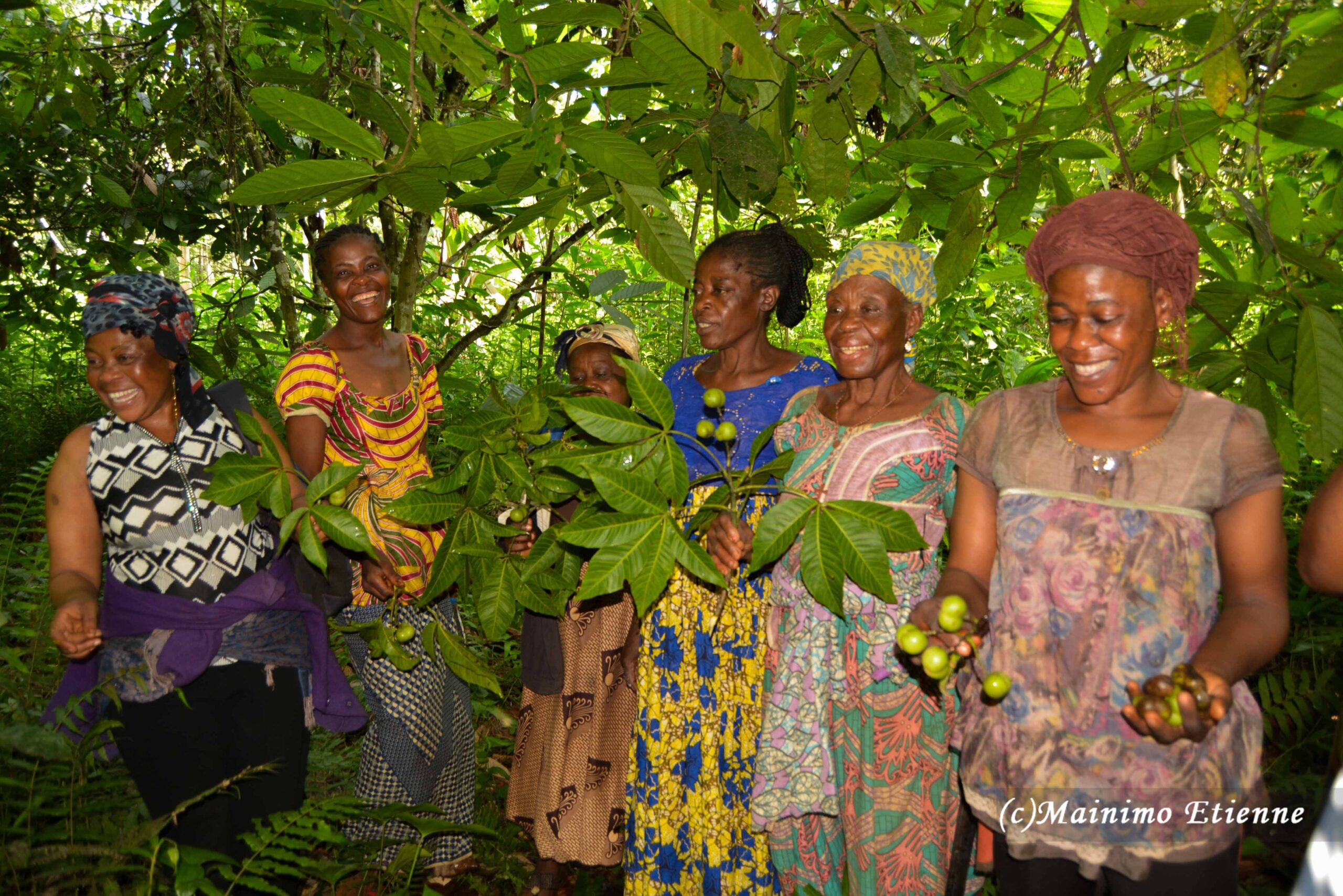By Etienne Mainimo Mengnjo
The journey from Batouri to Yokadouma is a long and arduous one. Crammed into a small car with no legroom, the only sounds breaking the monotony are the rumble of timber trucks and the jarring thuds of the car hitting potholes on the unpaved road.
By 7:30 am, the villagers of Mendoungue are up and bustling. Paths leading to the forest teem with people, each with their reason for venturing into the green expanse. As you cross streams, the symphony of birds fills the air, and animals awaken to the start of the day.

Towering trees stand tall, dominating the landscape and each playing a vital role in the forest ecosystem. Beneath their leafy canopy lies another world entirely: the lifeblood of Mendoungue. Vast cocoa plantations blanket the ground, a testament to the villagers’ primary source of income.
From a distance, a group of women can be seen gathering around something hidden under the trees. Despite the early hour, their faces are etched with determination and their focus is unwavering. Njansang bush mangoes, as well as bush pepper, are what they are hunting for, which they say is gold. In her hands, a woman holds Njansang (Ricinodendron Heudelotti) seeds.
These women are just a few of the many Mendoungue villagers and the 12 villages of Yokadouma who have embarked on a unique exploration, seeking ‘gold’ within the forest. They are united under the Or Nature Cooperative, which they credit as a turning point in their lives.
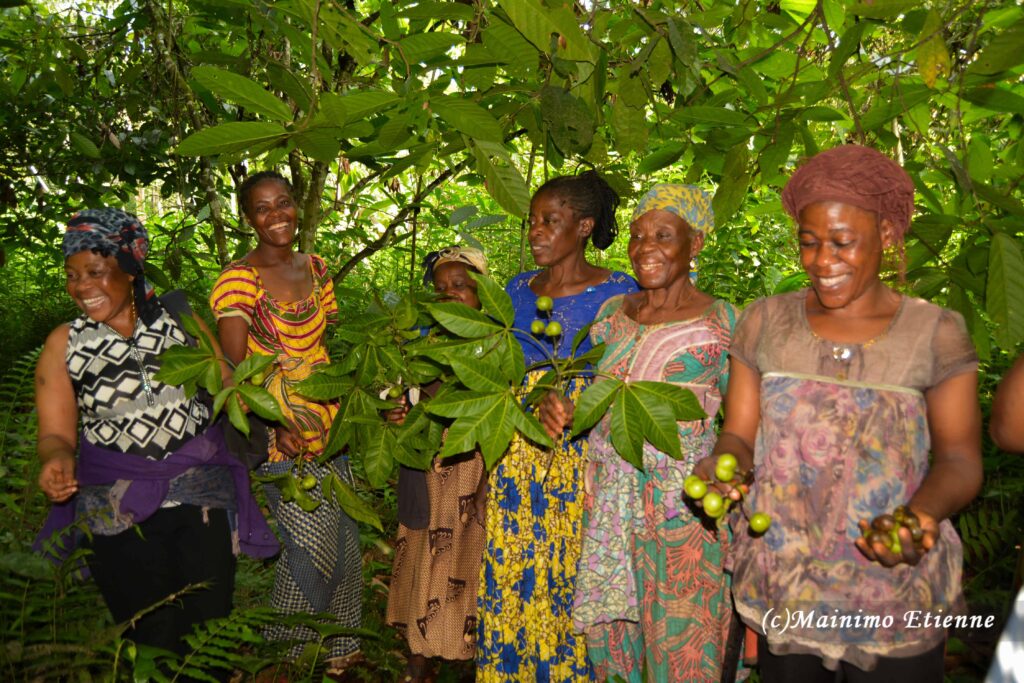
Approaching the women, this reporter inquires about their activities. One of them responds in their native tongue, but her words are quickly translated: “We are looking for Njansang seeds that have fallen, although it’s not quite the season yet.”
Lilian Mgbadgiga, the leader of the group, further elaborates, her voice filled with passion, “The forest provides everything. It offers resources we haven’t even fully discovered. God created nature for the benefit of all, and everything within it serves a purpose. This is what empowers us, and unites us. The forest provides for us.”
According to the mother of three, Or Nature was founded with the belief that the ‘gold’ found in the forest is a gift from God, meant for the betterment of the community.

“When we utilize it responsibly, we prosper. Responsible use means exploiting the forest without destroying it. We must protect the trees that God has bestowed upon us,” she emphasizes.
A member of the group, Felicite Langelle, president of Nisangayina, one of the 25 associations under Or Nature, highlights the benefits of belonging to a cooperative. “We earn much more by selling together,” she explains. “Individually, we get lower prices. But with combined efforts, the income allows us to significantly improve our lives. We can provide for our families, educate our children, build proper homes, and afford other necessities.”
She delves into the intricate process of Njansang processing. “Once gathered, the Njansang needs to rot. Then, the seeds are collected and meticulously washed. They are boiled until the outer shell cracks open. After the shells are removed, the seeds are washed again and sorted. During drying, they are turned regularly until completely dry.” The process differs for bush mangoes and bush peppers.
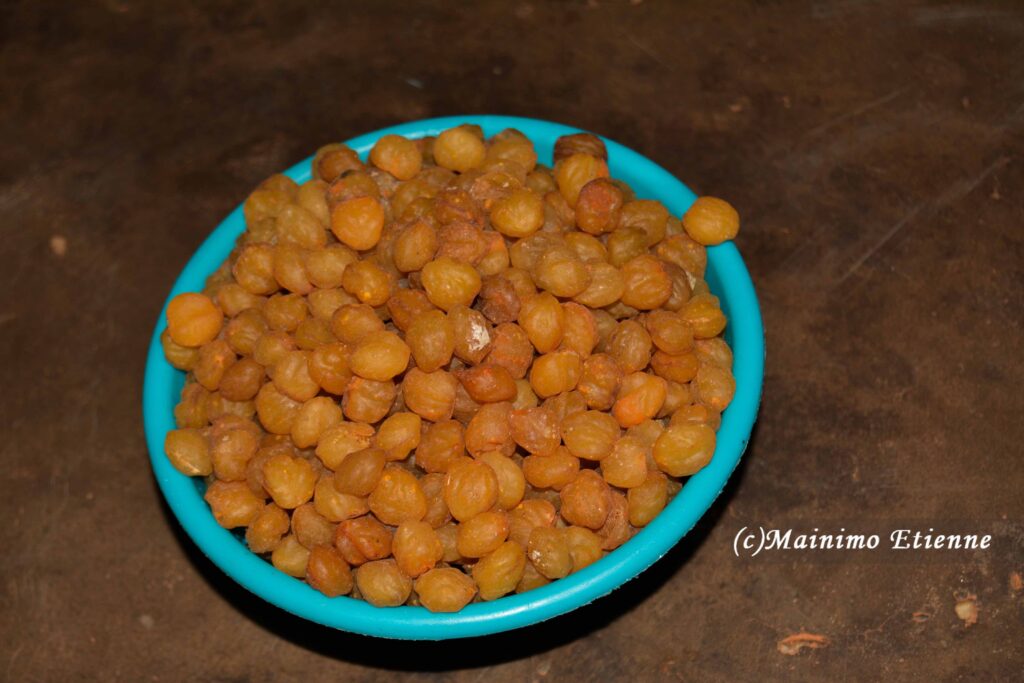
Beyond the financial gains from better market prices, these women acknowledge a significant improvement in their lives. They can now undertake projects that were previously impossible when they were selling their produce individually for meager sums.
“With more income, we can achieve substantial progress,” one woman declares.
This shift in Mendoungue and surrounding villages is partly due to the support of the World Wide Fund for Nature (WWF). According to WWF, a five-year project launched years ago aimed to instill better practices in collecting and post-harvest handling non-timber forest products (NTFPs).
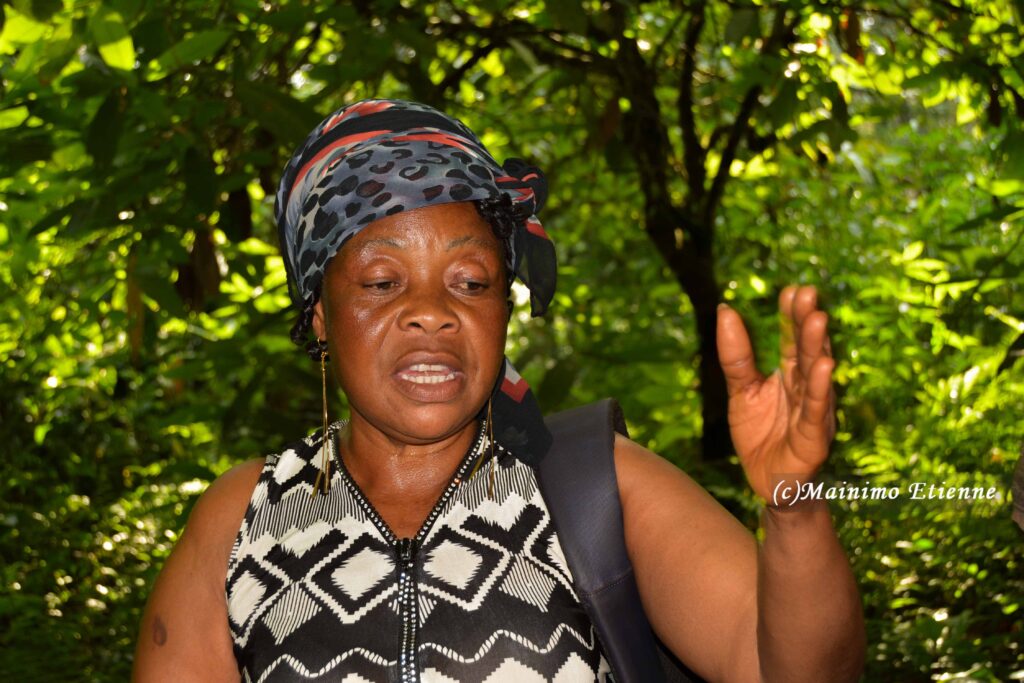
With ‘Mobilizing More for Climate’, (MoMo4C, ), the “focus is on supporting inter-groups in collecting and marketing their products effectively,” explains Estelle Assonwa, a WWF official. “Additionally, the project emphasizes community forest management.”
“We have provided training programs on sustainable harvesting practices, post-harvest handling, and finding partners who can offer them better prices for their products,” she adds.
WWF believes that this training empowers women with the knowledge they need to make informed decisions regarding forest resource management. However, Estelle acknowledges that challenges remain, particularly regarding market access.
“There’s still a lot of work to be done, especially regarding product commercialization. That’s why WWF is actively seeking local and international partners willing to buy their products at a fair price,” she explains. “We are collaborating with them and other stakeholders like GIZ to connect them with reliable buyers who offer fair and consistent pricing.”
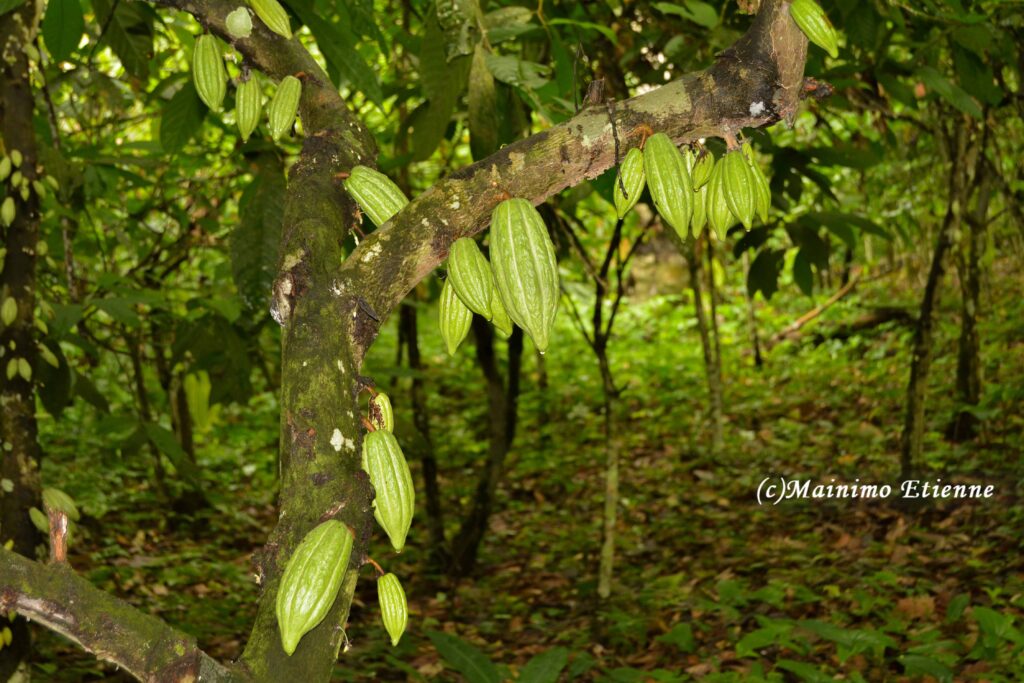
According to experts, the story of the women from Yokadouma is far more than a mere quest for precious forest products; it embodies a profound journey of unity and determination. They add that this chronicle is a celebration of the strength found in collective action, showcasing how a community can come together to steward their natural resources with care and foresight.
To them, it highlights the indispensable influence of non-governmental organizations (NGOs) in fostering such collaboration, providing the essential tools and knowledge needed for these communities to thrive.
Through their efforts, they maintained that the women of Mendoungue and its surroundings are not only seeking to unearth gold but are also laying the foundation for sustainable development and a more prosperous future for all.
It is a beacon of hope, demonstrating that with the right support and a shared vision, local communities can indeed effect meaningful change and chart a course toward a brighter tomorrow.

